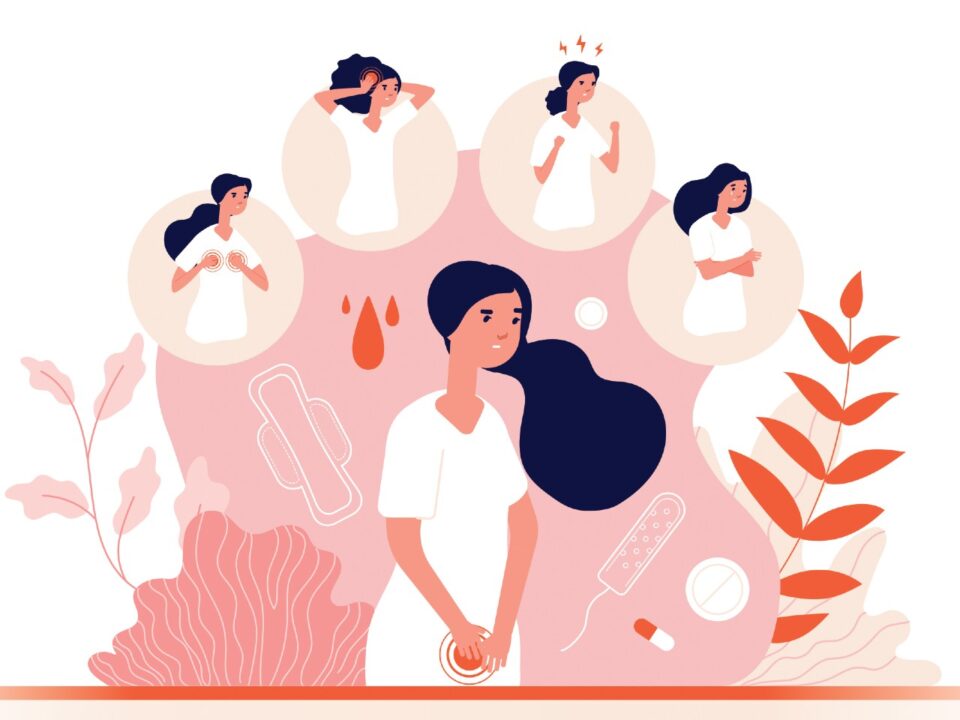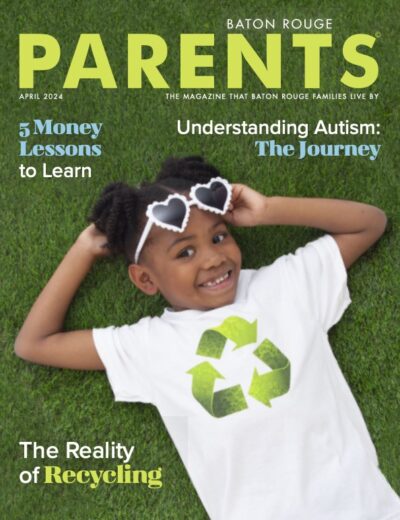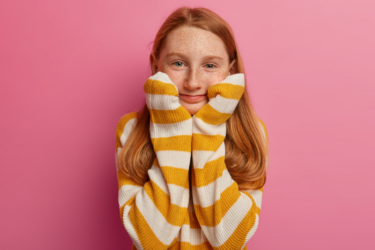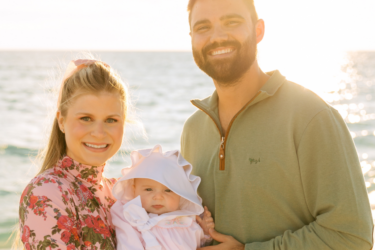
Welcome to Womanhood: A Period Survival Guide
Period talk can be tricky. Whether it’s been decades since your first period, or you’re a dad dreading a discussion on something you have never experienced, it’s important to properly prepare your daughter for her first period. And, while you may feel like you know the ins and outs of that time of the month, you may need a refresher course since times have changed. Dr. Victoria Bourgeois at Baton Rouge General is one of many doctors willing to help facilitate your daughter’s transition into womanhood. Remember: this experience is totally natural and is only as scary as you make it out to be!
HOW WILL I KNOW MY DAUGHTER WILL START HER PERIOD SOON?
The first thing to know is that, on average, girls are starting their periods much earlier than previous generations of women. So, while you may have started when you were almost in high school, some girls today can start as early as nine years old. This can be due to genetics and overall nutrition.
“African American girls do start sooner, at about 10 or 11 years old,” Dr. Bourgeois says. “In the U.S., the average age is 12 years old. This is because we’ve seen our population get taller and develop bigger body types because of both an increase in obesity and improved nutrition.”
The earliest signs of an oncoming period is breast development, which is around 9 or 10 years old, about a year or two before her first period. Most girls are mature enough to have “the period talk” at this age. The best way to gauge her maturity is to take time out of your day to ease her into the discussion.
“Sit down with your daughter for this conversation,” advises Dr. Bourgeois. “You can take her out for a girls’ day; go out to eat and get your nails done so she feels special, and make her feel like you’re letting her in on a little secret. Don’t sell it like a burden! Make sure she knows it’s something you want to talk about.”
Other signs include pubic hair, armpit hair, and body odor, which are all telltale signs of puberty and should be included in your period talk.
HOW CAN SHE PREPARE?
Most women can tell you their first period started at the most inconvenient time–at school, during a family gathering, on vacation…the list goes on. So, there’s no perfect way to prepare your daughter for her first period. The best thing you can do is know it exists, have the conversation about her bodily changes, and support her when it does happen. Remind her to keep pads in her purse, backpack, and overnight bag in the event her first period sneaks up on her.
“Introduce your daughter to pads beforehand,” says Dr. Bourgeois. “Very rarely do we recommend introducing young girls to tampons. Make sure you have pads and heating pads on hand and to make it as comfortable as possible for her so she doesn’t associate it with anything terrible.”
When she does eventually start, the safest methods of pain relief are heating pads, exercise, and Ibuprofen. Give her all the encouragement, advice, and space she requires. It will also be helpful to teach her about period hygiene such as showering and wiping.
WHEN SHOULD MY DAUGHTER SEE A GYNECOLOGIST?
If your daughter is nauseous, vomiting, or has debilitating cramps, it’s imperative to take her to a gynecologist for treatment. A period that is too heavy is another symptom that cannot be overlooked.
“For a young girl, a period is too heavy if she is using more than one pad an hour for more than two-three hours at a time. If that is consistently happening, she needs to be seen by a gynecologist sooner rather than later, preferably within the week,” Dr. Bourgeois informs. The same goes for teenagers or adults who are bleeding through more than five pads per day. A gynecologist will prescribe your daughter the hormone therapy (birth control) that is right for her to reduce the symptoms. Certain types of birth control contain estrogen and progesterone, which help especially with severe bleeding.
Otherwise, it is recommended that women start seeing a gynecologist annually for their pelvic exams starting at age 21. This recommendation is based on guidelines that are subject to change, as moms today may remember having their first gynecologist visit at 18 years old or even younger. Girls who might consider going before that age are those that may need STD screenings and those who request hormone management for their painful periods, both of which can be done without a pelvic exam.
If your daughter is not showing signs of puberty by age 15, talk to your pediatrician to make sure everything is on track.
WHAT FEMININE PRODUCTS SHOULD MY DAUGHTER USE?
Every girl is different. While they should start with pads, your daughter may be ready to use tampons much earlier than other girls if she is an athlete. Tampons allow for more comfortable movement and are necessary in pools. Otherwise, branching out from pads is based on a girl’s maturity level and comfort with her body and cycle.
“I wouldn’t introduce tampons to a normal girl until she is 14 or 15 years old, though some girls in their twenties don’t want to use tampons, and that’s okay!” Dr. Bourgeois says. Other period products your daughter may consider are menstrual cups and discs, and “period panties,” which are washable, functional pairs of underwear that also absorb like a pad or a tampon. Period panties may be beneficial for your daughter if she tends to bleed through her pad overnight.
Baton Rouge General hosts classes called Girl Talk once a month, which are open for all girls ages 8-14. At girl talk, doctors such as Dr. Bourgeois will talk to girls and their parents about their changing bodies and teach them the necessities such as how to wear pads and tampons. They are there to answer any questions you and your daughter may have about her first period and to reassure you that this is a completely normal process of womanhood.





